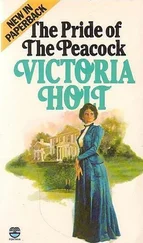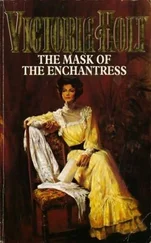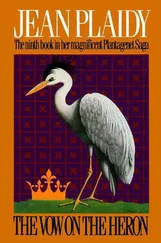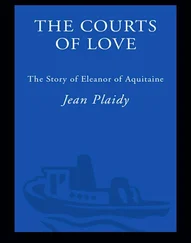When our son was two years old, Conrad and I took a trip to England. The Grange was made ready for our arrival, and it seemed so strange to go back there and see the row of cottages where Daisy's mother still sat outside on summer's evenings and could be seen pegging her clothes on the line.
Daisy accompanied us, which gave me a lot of pleasure, but we did not plan to stay long, for we hated leaving our children.
I stood and looked at the grey walls of the manor. It seemed different now, for there were children playing on the lawn. There were three of them—two girls and a boy.
These must be Cousin Arthur's children.
Sophia made me feel very welcome. She was clearly happy and I thought how extraordinary it was that Cousin Arthur, who had seemed to Francine and me quite impossible as a husband, should have turned out so satisfactorily for Sophia.
I was even more astonished when I saw Cousin Arthur. He had grown plump and he looked amazingly contented. He clearly enjoyed family life and I was astonished to see that his children were not in the least in awe of him. I wondered what he was like when he gave them religious instruction.
When I was alone with him he became a little embarrassed, as though he was trying to tell me something and didn't know how to begin.
I said to him: "Marriage has changed you, Cousin Arthur."
He admitted that it had. "I must have seemed insufferable to you and Francine," he muttered.
"You did," I agreed. "But you are like a different person now."
"I was a hypocrite, Philippa," he confessed. "When I look back I just despise myself. And that's not all. I have been really criminal... ."
I laughed. "Surely not. What do you call criminal? Forgetting to say your prayers one night?"
He leaned towards me and took my hand. "I was afraid of poverty," he said. "I didn't want to have to eke out some poor living as a miserable curate, which is what I should have done but for your grandfather. I wanted Greystone Manor ... I wanted it desperately. It came to me ... but I didn't deserve it."
"Oh, nonsense. You have made it a happy place. The children are adorable."
"That's true," he said, "but I don't deserve my good fortune. I'm glad to have an opportunity of talking to you. I wronged you, Philippa. I was ready— But let me explain. I wanted Greystone Manor badly so I made myself exactly what your grandfather wanted so that he made up his mind that I should marry either you or Francine. We know what happened about that. Well, I didn't want to marry either of you. It was always Sophia for me."
"Oh, Cousin Arthur, if only we had known!"
"I dared not let it be known. Sophia and I had been in love for some time... . Then, she became pregnant. I had to do something. There came that night when your grandfather died. You had quarrelled with him and everyone heard. He was in an excitable mood. I thought that now he had lost all hope of getting you to fall in with his wishes, he wouldn't want to lose us all, and while he was in this mood was the time to tell him what I had done. So I went to his bedroom. I had confessed that Sophia and I must marry now. I shall never forget his face. He was in his nightcap and his fingers trembled as he grasped the sheet. He stared at me unbelievingly and then got out of bed. I think he was going to strike me. He came towards me and I put out my hands to ward him off. I don't know whether I pushed him or not. It all happened so quickly. He fell backwards and struck his head. I was panic-stricken, for I realized that he was dead. I didn't kill him. He fell. I saw that there would be a great deal of trouble. Everything would come out... . I had to think of Sophia. ... I had to act quickly... ."
"So," I said, "you set fire to the place."
He nodded.
"I should never have allowed you to suffer for it, Philippa," he said quickly. "If it had gone further ... I should have had to tell the truth. But there was Sophia and the child she was carrying— You understand. If we could keep it quiet... if it could all blow over ..."
"Even though suspicion rested on me."
"They never brought a charge. It was accidental death. It was accidental death and, Philippa, you were young ... you went away. I felt no guilt—except where you were concerned."
My thoughts slipped back to those strange days. I remembered how kind, how unexpectedly sympathetic he had been to me. I could hear the shouts of the children on the lawn, and I gripped his hand.
I was suddenly very happy. I looked up and saw a blackbird flying high.
I said:
" 'The lark's on the wing;
The snail's on the thorn:
God's in his Heaven-
All's right with the world.'"







